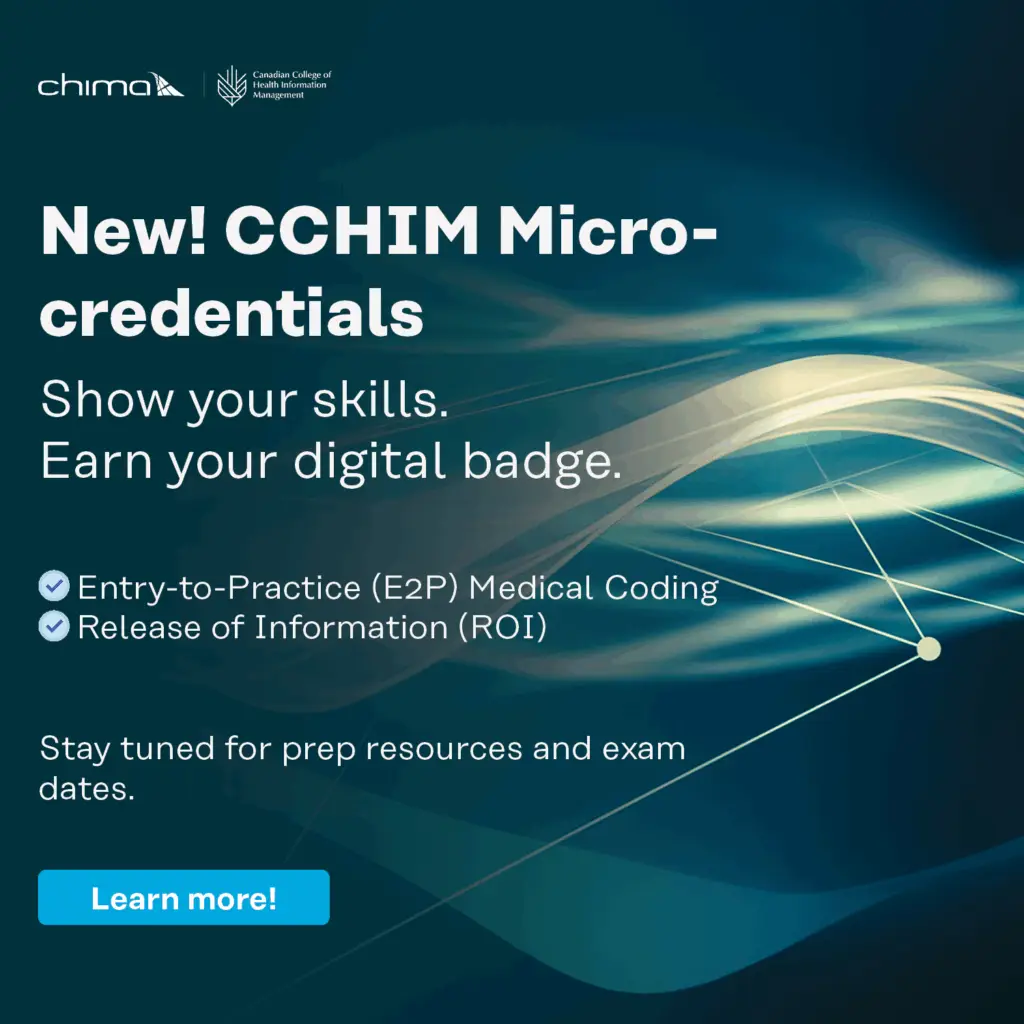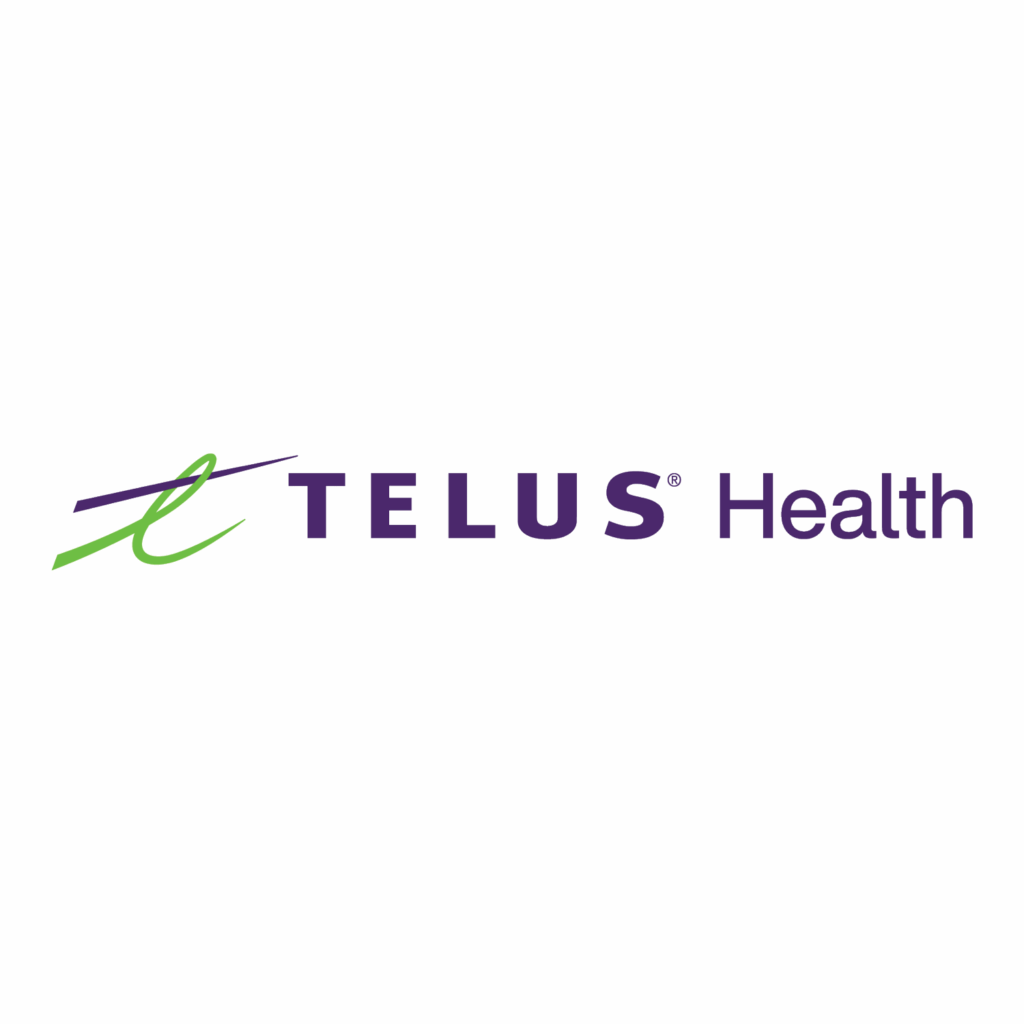
In our latest Spotlight, we had the opportunity to sit down with Melissa Peck, an accomplished health care professional in Health Information Management. Melissa is the Senior Manager of Patient Registration and Admitting at Mount Sinai Hospital in Toronto.
During our conversation, Melissa shared her motivations for pursuing a career in Health Information Management and her insights into the future of health information.
Join us in our conversation with Melissa Peck.
Watch the full interview here.
Early Inspirations
After witnessing the profound impact of health care professionals on her family member’s health condition, Melissa found her calling.
Melissa Peck:
My story is a personal one. In 2004, someone close to me was rushed to a trauma center in critical condition. At that time, I had never been to a hospital. It can be very scary when you don’t know what is going on. The first 24 hours in the hospital were really intense, but I came to see the hospital as a place of healing, hope, and inspiration. I was young and just finishing high school, and not sure where I wanted to go with my career, but I knew I wanted to be a part of that magic.
HICA Certification
Melissa proudly discussed her Health Information Certified Associate (HICA) certification from the Canadian College of Health Information Management. Melissa emphasized that certification is more than just a professional milestone; it’s a commitment to quality and continuous improvement, which is vital in the ever-evolving health care landscape.
Kelly Wilson:
When people think of health care, they think of the big buckets: physicians, nurses, and physician’s assistants. Health administration often gets overlooked. I understand you have received your designation as a Health Information Certified Associate (HICA). Can you elaborate on what that certification entails and its significance in your role and to the Patient Registration and Admitting department?
Melissa Peck:
Absolutely! The Health Information Certified Associate (HICA) certification validates knowledge in five key areas: clinical knowledge, health care systems, health care technology, health care office management, and professionalism in health care. There are two paths to achieving this designation: completing an accredited college program followed by a national certification exam or challenging the exam for those already in the profession. The exam consists of 50 multiple-choice questions covering the five key areas.
Once certified, professionals maintain certification by completing 36 continuing education credits every three years. HICA certification is a great way for health information professionals to join a community that supports continuing education and career growth.
Continuous Improvement
Melissa Peck:
When I first joined the Sinai Health team, I was eager and excited to learn the workflows and understand the key data elements. How were we handling information, and how was that information interconnected? [This curiosity] sparked a small-scale collaborative project with colleagues focusing on our admission, discharge, and transfer system.
We conducted an in-depth analysis of our collected data, questioning its relevance. Our objective was to improve efficiency in the registration and admission process by eliminating redundant data elements.
This project evolved remarkably over the last six years into a continuous process improvement initiative. We now hold weekly meetings where we scrutinize the registration processes in Oracle Cerner, identify errors, assess new or revised data elements, and implement system controls to enhance data quality.
We’ve seen substantial improvements, including reduced registration turnaround times, [which are] crucial in critical areas like the emergency department where every second counts. This means that patients can receive care faster.
Vision for the Future
Kelly Wilson:
In an ideal world, how do you envision the future landscape of health information? What would be the key differences between this ideal scenario and the current state of health information?
Melissa Peck:
That’s a great question. I think the interconnectedness of health records is key, and implementing a seamless, province-wide, or even Canada-wide electronic medical record (EMR) system would significantly reduce duplicate efforts and enhance patient care experiences.
One of my interests, especially pre-pandemic, was exploring the use of biometrics in positive patient identification. There are instances where patients cannot speak for themselves. In such cases, biometrics, particularly facial recognition, could be invaluable. Imagine a system where a patient’s face is scanned or a photo is taken to validate their demographics, ensuring a genuine match with their medical records. This approach could minimize the duplication of records or selection errors.
I’ve also witnessed a significant shift towards technology, moving from paper charts and records to electronic systems. I foresee technology advancing to provide the best possible care and patient experience. This includes using Artificial Intelligence (AI) to eliminate errors and enhance data integrity and quality.
For example, AI can leverage various databases, like the Canadian postal code system, to suggest accurate data entries or physician information. This could significantly reduce typos and other minor errors, enhancing the accuracy of medical records. AI-driven autocomplete features could be especially useful in a province as large as Ontario. This can help increase accurate and efficient data entry and reduce the repetitive questioning that can add to a patient’s anxiety.
Balancing Professional and Personal Growth:
Melissa offers a glimpse into her life beyond work. Balancing a demanding career with personal development and enjoyment is not just a practice but a philosophy. She advocates for setting goals and taking breaks. “It’s about knowing one’s limits and finding joy in both professional and personal endeavors.”
Closing Thoughts:
Reflecting on our discussion, it’s clear that Melissa Peck foresees a future where technology and health information are interconnected. Her conclusion is that the essence of health care is twofold: it encompasses the empathetic clinical care provided by frontline practitioners and the dedicated and compassionate team that gathers health information.
Biography
Melissa Peck is the Senior Manager of Patient Registration and Admitting at Mount Sinai Hospital in Toronto. Mount Sinai Hospital is a patient care, teaching, and research center affiliated with the University of Toronto and a part of Sinai Health.
Melissa has achieved more than fifteen years of progressive experience in health care administration, beginning her career as a Medical Office Assistant and transitioning into the hospital sector, where she advanced to leadership.
She holds a Master of Health Studies, a Bachelor of Commerce, and the Health Information Certified Associate (HICA) Certification. She is passionate about continuous quality improvement, which inspired her to complete a LEAN Health care Yellow Belt.
Melissa is a member of the Board of Directors for the Rexdale Community Heath Centre and an active member of Toastmasters International.
Melissa is committed to life-long learning and personal growth.



